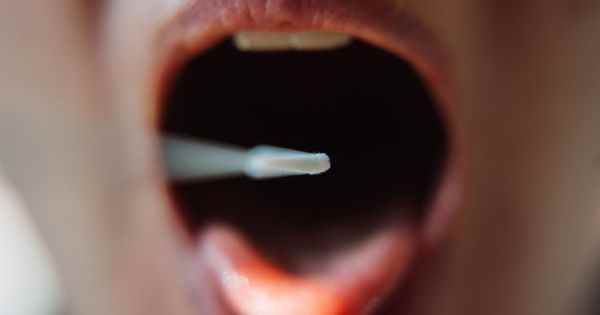A start-up has developed a saliva test to detect endometriosis in a few days. This non-invasive method could advance the time to diagnosis. Its availability to patients is currently the subject of consultation with the French health authorities.
Endometriosis affects 10% of women of childbearing age in France. Diagnosis generally occurs late: the delay is about 6 to 8 years on average. To improve support, ZIWIG, a French star-up, has developed the Endotest® in collaboration with experts from the National College of French Gynecologists and Obstetricians (CNGOF). It was presented on January 11, when Emmanuel Macron wants to implement better detection of the disease, as part of the national strategy to fight endometriosis.
It is a saliva test capable of diagnosing forms of endometriosis within days, created by artificial intelligence and next-generation sequencing. “The reliability of this test is exceptional with a sensitivity of 97%, a specificity of 100% and a diagnostic performance greater than 98%” unveils the CNGOF press release on February 14. “It should revolutionize the diagnosis and management of the disease and constitute a major advance for women’s health”.
A non-invasive and easy-to-perform test
For the moment, laparoscopy is considered the reference examination for the diagnosis of endometriosis, but it is performed under general anesthesia and can be accompanied by complications like any surgical procedure. A saliva test is non-invasive and can be performed by the patients themselves by sending a self-sampling kit, which will then be sent back with the sample to the laboratory. It makes it possible to diagnose all forms of endometriosis, from the superficial to the deepest: “among the more than 2600 human miRNAs, 109 miRNAs implicated in the pathophysiology of endometriosis have been identified in saliva” can we read in the press release.
The availability of Endotest for patients is currently the subject of consultation with the French health authorities, “with a view to its registration in the course of care and its possible reimbursement by Health Insurance”.
